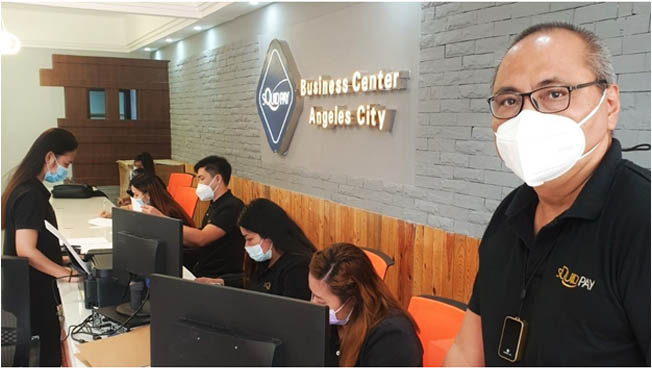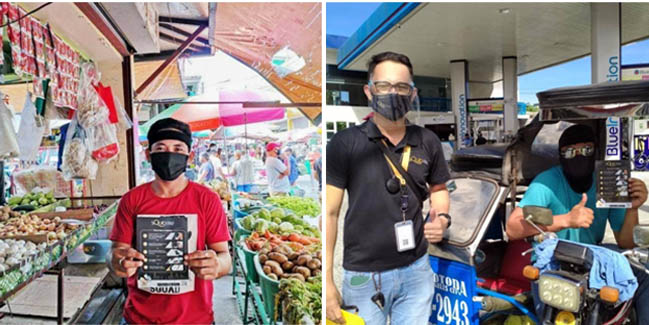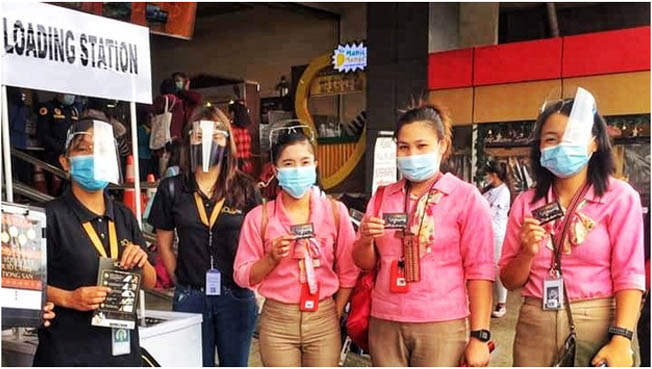In recorded call, Trump pressured Georgia to ‘find’ votes to tilt election
US PRESIDENT Donald Trump pressured Georgia’s top election official to “find” enough votes to overturn his defeat in the southern state, according to a recording of the hour-long call published by US media on Sunday.
The Saturday call was the latest move in Mr. Trump’s two-month effort insisting that his loss to Democratic President-elect Joe Biden in the Nov. 3 election was the result of widespread voter fraud, a claim that has been widely rejected by state and federal election officials and multiple courts.
Mr. Trump’s call to Georgia Secretary of State Brad Raffensperger, a fellow Republican, came as some of Mr. Trump’s allies in the US Congress plan to object to the formal certification of Mr. Biden’s victory on Wednesday. The former vice president won by a margin of 306-232 in the state-by-state Electoral College, and by more than 7 million votes overall.
On the call, which was released by the Washington Post, Mr. Trump repeatedly pressures Mr. Raffensperger to declare that Mr. Trump has won more votes than Mr. Biden.
“All I want to do is this: I just want to find 11,780 votes, which is one more than we have,” Mr. Trump says, according to audio of the call. “There’s nothing wrong with saying, you know, that you’ve recalculated.”
The state conducted three separate ballot counts, resulting in two official certifications of Mr. Biden’s victory. Final results show Mr. Biden won 11,779 more votes than Mr. Trump out of nearly 5 million cast.
Mr. Raffensperger and his office’s general counsel reject Mr. Trump’s assertions and tell the president that he was relying on debunked conspiracy theories spread on social media about what was a fair and accurate election. “Mr. President, the challenge that you have is the data you have is wrong,” Mr. Raffensperger says.
The White House declined to comment. Mr. Raffensperger’s office did not respond to requests for comment.
Bob Bauer, a senior adviser to Mr. Biden, said the recording captures “the whole, disgraceful story about Donald Trump’s assault on American democracy.”
POSSIBLY CRIMINAL ACT
Mr. Trump’s action drew immediate criticism from election-law experts and congressional Democrats who said it could amount to an illegal act.
“Not only is pressuring election officials against the law, threatening Raffensperger if he doesn’t comply with Trump’s wishes borders on extortion,” said Democratic Senator Dianne Feinstein.
Georgia State University law professor Anthony Michael Kreis said Mr. Trump may have violated state and federal laws against soliciting election fraud.
“If any other person did this — someone else with power to leverage over an election official — there is no doubt in my mind that at the very least a criminal investigation would be opened right away,” said Mr. Kreis, adding that he thought that was unlikely in Mr. Trump’s case.
If Mr. Trump were prosecuted, he would likely argue that he genuinely believed that the election was rigged against him in elaborate ways, said Justin Levitt, an election law professor at Loyola Law School.
Mr. Biden’s narrow victory in Georgia was the first by a Democratic presidential candidate in a generation and has raised hopes among Democrats that they could win a pair of US Senate runoffs in the state on Tuesday, giving their party control of Congress.
Over the course of the call, Mr. Trump alternately cajoles, insults and threatens Mr. Raffensperger as he tries to convince him to overturn the results.
“We won the election and it’s not fair to take it away from us like this, and it’s going to be very costly in many ways,” Mr. Trump says. “I think you have to say that you’re going to re-examine it.”
Since his election loss, Mr. Trump has encouraged supporters to hold raucous street rallies that have occasionally tipped into violence. Mr. Raffensperger and other election workers across the country have faced harassment and threats, with some going into hiding for their safety.
“There’s turmoil in Georgia and other places — you’re not the only one. We have other states that I believe we’ll be flipping to us very shortly,” Mr. Trump said.
Even if Mr. Trump had won Georgia’s 16 Electoral College votes, he would still have lost the White House to Mr. Biden, who will be sworn into office on Jan. 20.
Mr. Trump’s lawyers have had no luck over the past two months as they have pressured officials in Michigan, Arizona, Pennsylvania and other closely contested states to overturn his losses.
Mr. Trump’s call came days before Senator Ted Cruz is set to lead several fellow Republican lawmakers in a long-shot bid to disrupt the formal recognition of Mr. Biden’s win when Electoral College results are tallied in Congress on Jan. 6.
The move is seen as a mostly symbolic protest and is not supported by Senate Republican leaders.
Republican Senator Lindsey Graham, a staunch Trump supporter, said in a statement on Sunday that Cruz’s insistence on a vote audit commission had “zero chance” of success.
Senate Democratic leader Chuck Schumer said on Twitter that if Cruz and “his gang” wanted to investigate election fraud, they should start with Mr. Trump’s call with Mr. Raffensperger.
Ten former defense secretaries urged Mr. Trump to concede, writing in a joint article that the time for questioning the results had passed, and that any effort to involve the US armed forces in resolving election disputes “would take us into dangerous, unlawful and unconstitutional territory.” — Reuters







